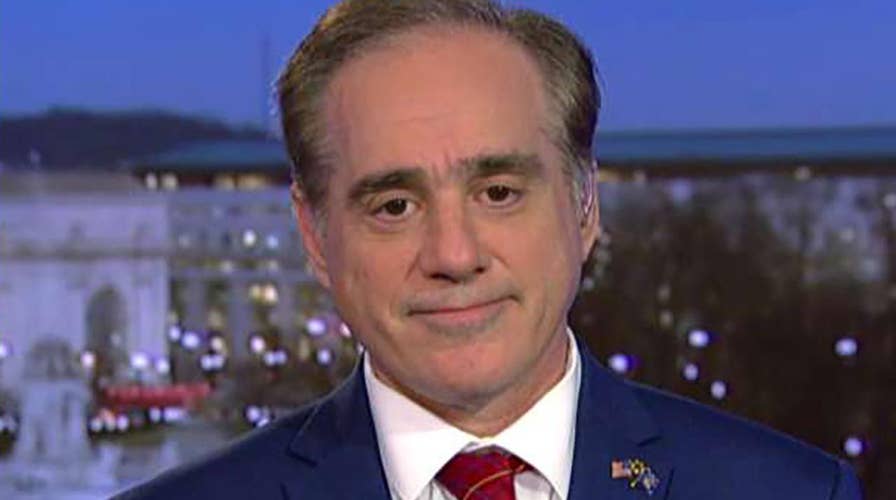Former VA Secretary Shulkin reacts to ouster
David Shulkin responds to criticisms of Veterans Affairs leadership.
The White House is hitting back at former Veterans Affairs Secretary David Shulkin for claiming that he was fired from his job and that he was only informed about it shortly before President Donald Trump tweeted about his replacement.
The Trump administration says he left his job willingly amid a bruising ethics scandal and mounting rebellion within the agency. The semantics of whether Shulkin resigned or was fired could be relevant to Trump's ability to name an acting secretary to temporarily fill his place.
On Sunday, chagrined by Shulkin's public statements blaming his ouster on unfair "political forces" in the Trump administration, the White House circulated a "talking points" memo to some veterans groups in a bid to discredit him.
Shulkin maintains that he never submitted a resignation letter.
"I came to run the Department of Veterans Affairs because I'm committed to veterans," Shulkin said. "And I would not resign because I'm committed to making sure this job was seen through to the very end."
HOWARD KURTZ: VA chief's firing portrayed as chaotic, but Trump had some good reasons
The semantics could be relevant to Trump's ability to name an acting VA secretary to temporarily fill Shulkin's place. Last week, Trump named Defense Department official Robert Wilkie to the acting position, bypassing Shulkin's deputy secretary, Tom Bowman. Bowman has come under criticism for being too moderate to push Trump's agenda.
Under federal law, a president has wide authority to temporarily fill a federal agency job if someone "dies, resigns, or is otherwise unable to perform the functions and duties of the office." There is no mention of a president having that authority if the person is fired. Still, it's unclear if courts would seek to draw a legal distinction between a firing and a forced resignation, if that is indeed what happened to Shulkin.
Shulkin, a former hospital executive, fired back in a New York Times op-ed that called the atmosphere in Washington "toxic, chaotic, disrespectful and subversive." He complained that he had "been falsely accused of things by people who wanted me out of the way ... It should not be this hard to serve your country."
The Associated Press contributed to this report













































